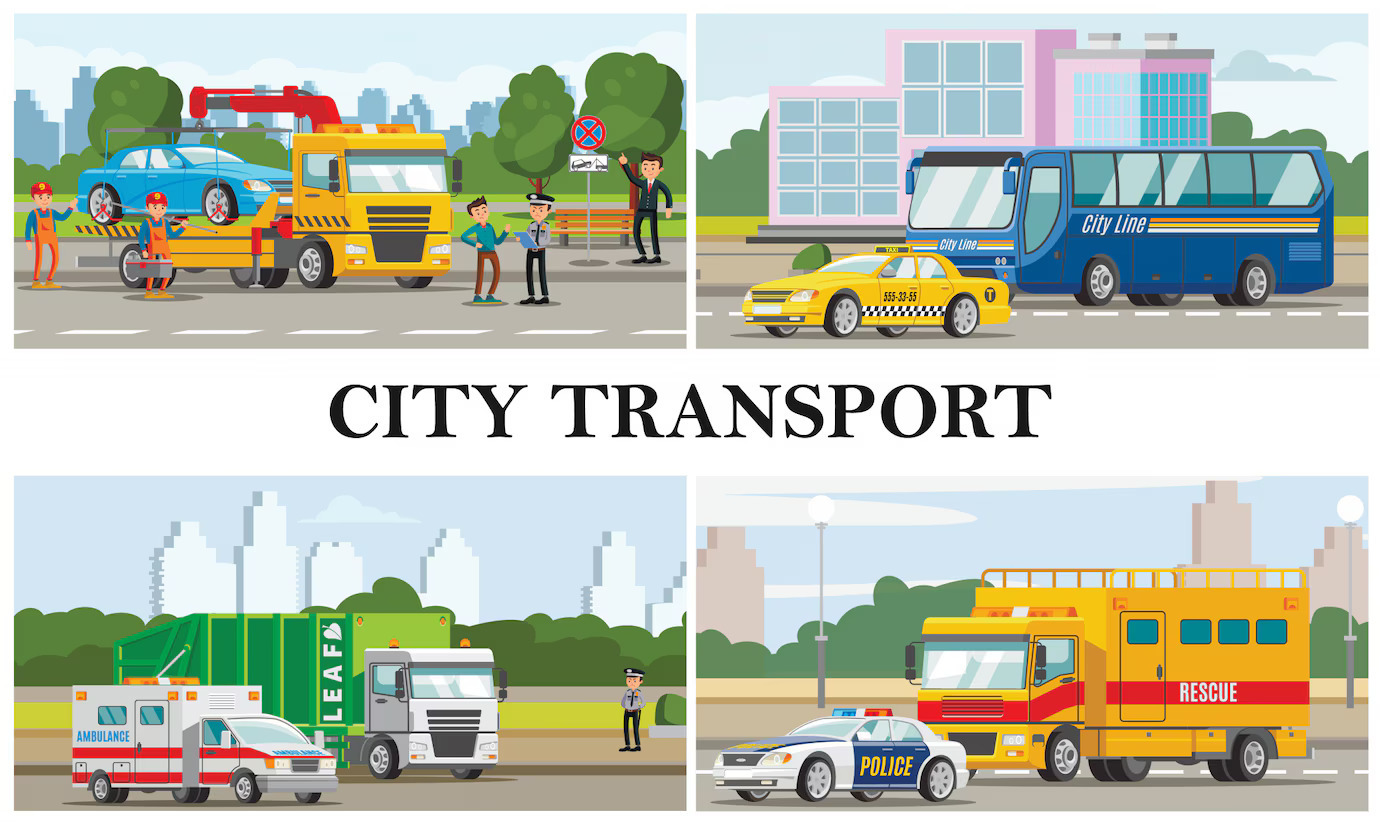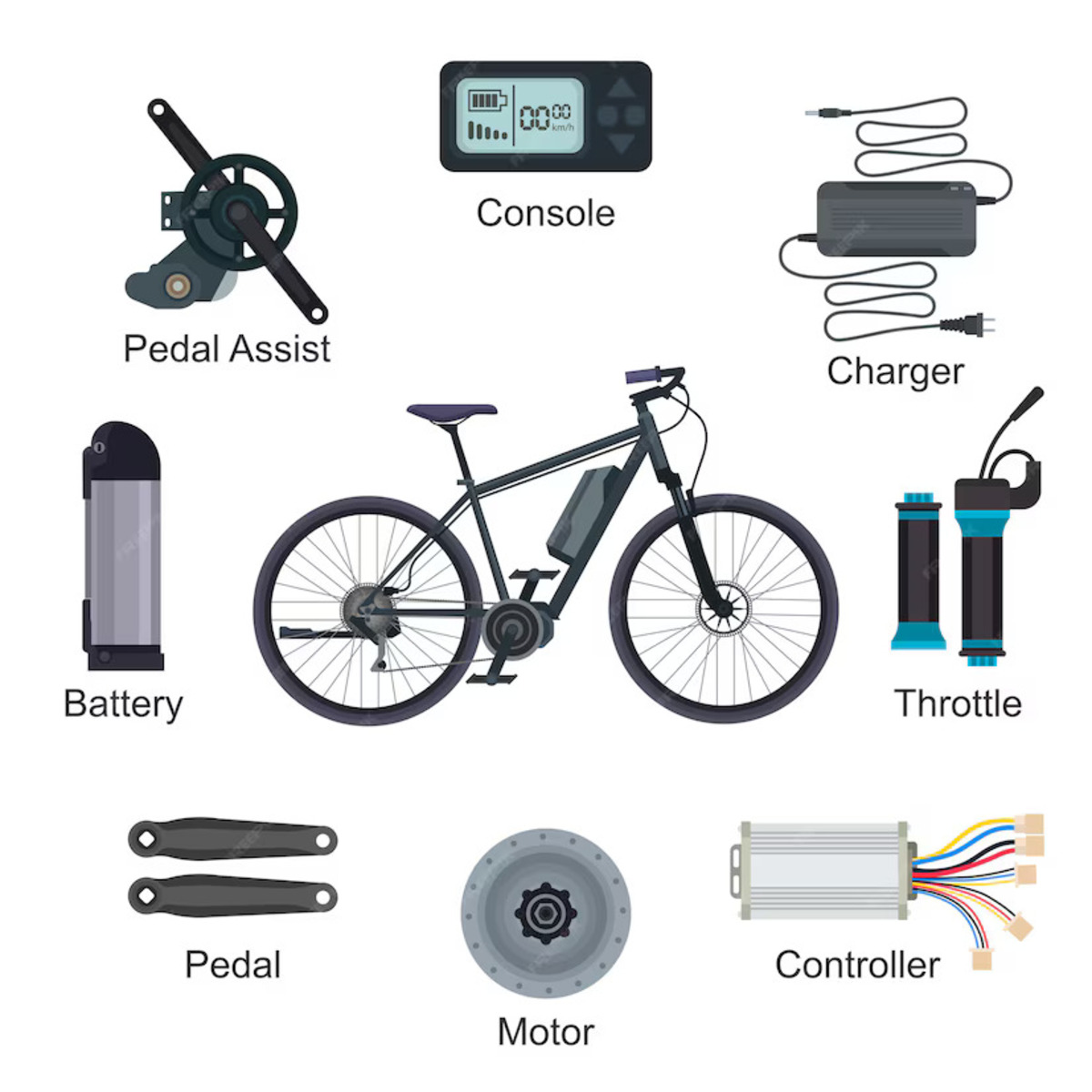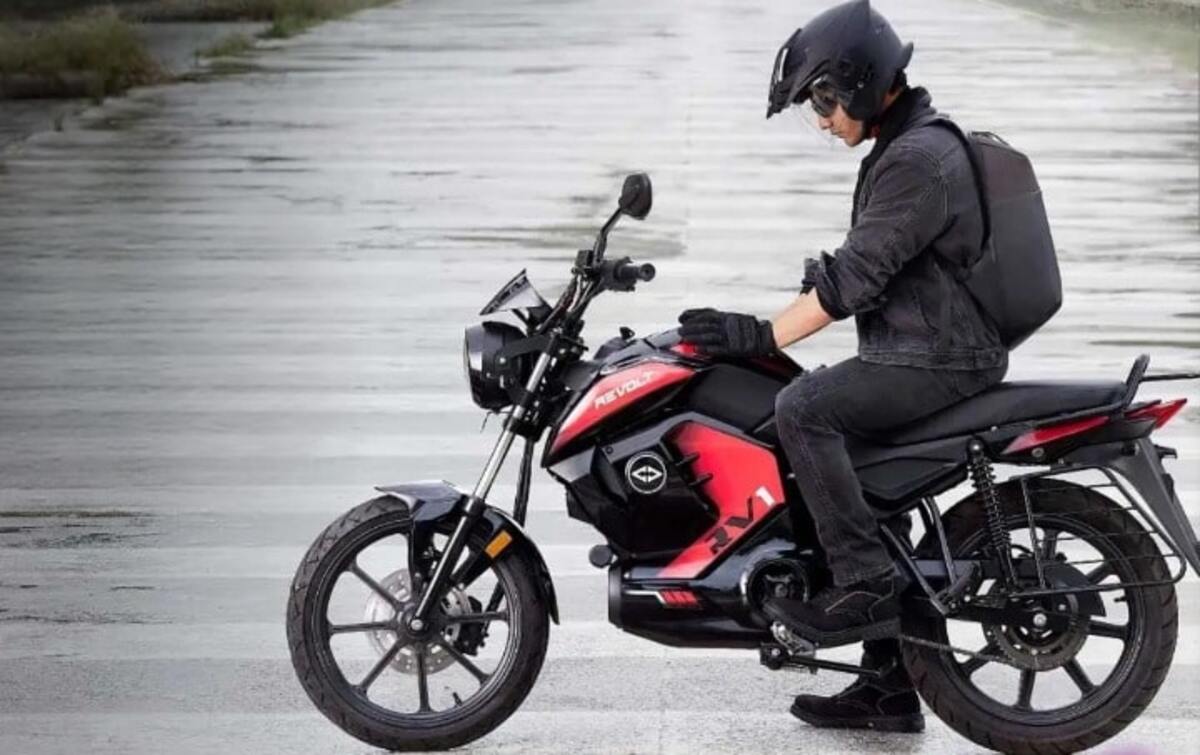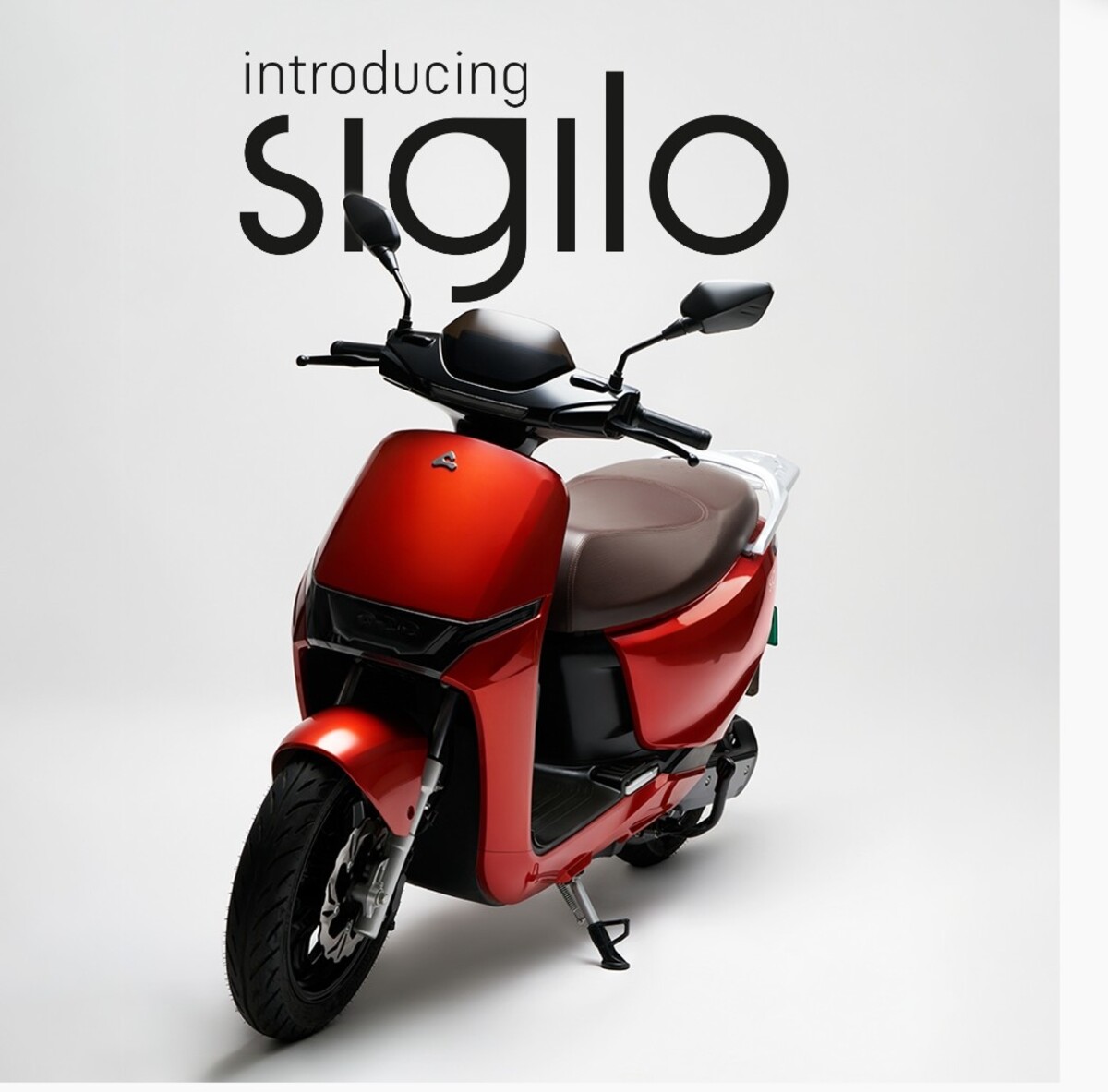This blog post will provide you the knowledge and potential of Electric commercial vehicles– Trucks Buses and Autorickshaw. The future of electric vehicles appears to be bright and electric commercial vehicles are the heart and soul of the Indian transportation industry.
As the name indicates, electric commercial vehicles are vehicles that are primarily used for carrying goods from one place to another. Unlike a passenger vehicle, electric commercial vehicles are used by professional drivers for a variety of trades. The three-wheelers, known as auto-rickshaw plays a significant role in commercial market. Commercial vehicles can be a source of livelihood for many as it is used for ferrying passengers, connects rural region to urban region, and facilitate in the transportation of agricultural products, supporting the rural business as well.
Manufacturers of electric vehicles are offering a variety of different commercial vehicles. The government has increased its focus on emissions-free vehicles so that people’s adoption of electric trucks and buses will also increase. An electric truck is an electric vehicle that runs on rechargeable batteries. It is used to carry cargo and heavy payloads. Gradually, the popularity of electric trucks and buses has been increasing. Electric trucks are more efficient than diesel trucks. It will grow the demand for electric trucks. India’s first electric truck was made in Gujrat.
Mahindra’s first electric truck is scheduled to launch in 2025
Emissions of CO2 and other harmful gases from diesel trucks are expected to grow more because of the increasing trade system. India has the potential to grow in the EV market, which is why the government is coming up with new schemes to attract manufacturers to the domestic market.
Potential of Electric Commercial Vehicles– Trucks Buses And Autorickshaw

There are numerous factors that contributed to the sale of electric commercial vehicles. Gradually, electric buses and heavy-duty trucks are becoming popular, and the growing demand for electric trucks is pushing the manufacturer to broaden this area. We are accelerating in the world of electric mobility by shifting to it and installing charging stations. The automobile company supports the government’s target so that gasoline and diesel vehicles will be phased out soon.
Here are some points that shows the potential of electric commercial vehicles- Trucks Buses and Autorickshaw:
- Do Not Pollute The Air
- ONE PEDAL OPERATION
- Happier Drivers for Silent Running
- Cost-effective
- Recycle Your Electric Vehicle Battery
- Less Maintenance
- EV Trucks Can Improve Long-Term Profitability
Please find the below details of the above headings in details:
1. Do Not Pollute The Air
The first and foremost potential of electric trucks, electric buses and electric autorickshaw are that they do not emit harmful gases like traditional vehicles. So, they keep the environment clean. A company that focuses on making electric trucks increases its image, as in the future, electric trucks and buses will be in greater demand. They are key components to helping India meet its target of reducing gas emissions.
2. ONE PEDAL OPERATION
Regenerative braking allows the driver to slow down the speed of the car by lifting their foot from the accelerator. One pedal driving technique can be used when you are in constant-stop traffic. For a quicker stop, regenerative braking can be adjusted.
3. Happier Drivers for Silent Running
Commercial electric vehicles run so quietly that they do not contribute to noise pollution. Commercial EV drivers also feel happy because of their quiet performance. For their quiet performance, it is stated that electric trucks are good and perform well.
4. Cost-effective
The maintenance cost of all EV vehicles is less than that of internal combustion engines. The latest technology and best materials ensure better performance and a longer range for electric trucks. Electric trucks reduce fuel expenses. Like other electric vehicles, electric trucks do not need fuel and reduce CO2 emissions. They run on electricity and are considered environmentally friendly.
5. Recycle Your Electric Vehicle Battery
Recycling lead acid electric vehicle batteries is efficient and can be profitable as it takes zero-waste material. Recycling keeps harmful materials out of the environment and keeps batteries safe. Recycling lithium-ion batteries brings many benefits, such as preventing water and soil contamination and protecting valuable sources of nature.
6. Less Maintenance
Electric trucks and buses have fewer moving parts, which leads to less damage to the vehicle. Less damage requires less maintenance, and even then, it depends on the truck model. An electric truck is more efficient than a diesel truck.
7. EV Trucks Can Improve Long-Term Profitability
They produce no gases and help generate new renewable sources. Electric trucks reduce your dependency on fossil fuels, so you should not be worried about the rising prices of diesel or gasoline. Such electric trucks can run at night, which increases long-term profitability when heavy vehicles are not allowed because of their loud noise. The support of the government in the form of incentives, lower registration fees, etc. also increases the potential of heavy-duty vehicles.
An autonomous electric truck would be built, was announced by the Indian company Ashok Leyland. It is joining hands with Adani Enterprises Ltd. and Reliance Industries Ltd. In order to limit emissions and achieve the climate goal of a greener commercial fleet, we need to tackle the problems of emissions and transport costs.
With the growing demand from consumers, the number of electric trucks is expected to increase. India has planned to cut emissions to net-zero by 2070. Tata Motors, India’s largest automaker, has already built a small electric truck in India. India’s potential is large, whereas the existing market is very tiny. To overcome these hurdles, more investment is needed, which would increase the demand for electric vehicles.
India is one of the countries where truck sales are expected to increase between 2023 and 2040.
The development of new technology and government support will surely expand the rapid sales of electric trucks in the coming year.
Electric truck operations can become financially viable in India through new innovations in battery technology and cost reduction policies. These vehicles have increased the use of electricity. The electric buses and trucks use the latest technology and ensure better performance, high efficiency, and a longer range to travel more with zero emissions. Authentic motors and well-organized power electronics are powering buses, trucks, and other vehicles around the world today.
To learn more about the future of electric trucks in India, click here.
Challenges in Electrifying the Electric Commercial Vehicles- Trucks Buses and Autorickshaw
There are very few electric trucks on the road. It is easy to say that electric buses and trucks help the environment by going green, but it is a very time-consuming process. You need to dig deep to go green. High electricity costs can create a hurdle in the EV sector. The purchase price of an EV seems to have been an obstacle until now, and many companies are planning how to make them cost-saving vehicles.
There are different types of commercial vehicles available, such as Panel van, Luton van, Combi van, Tipper van, Chassis van, Tata Motors, Ashok Leyland, Omega Seiki Mobility, Infraprime Logistics Technologies Pvt. Ltd., Daimler, Mahindra, ALKE Electric Utility Vehicles, Tropos Motors Electric Vehicles, Saturn EV Ltd., Lion Electric, etc. are the electric truck manufacturers in India.
We have identified the below list of challenges in Electric Vehicles: Trucks Buses and Autorickshaw
- High Cost Of Electric Trucks
- Electric Vehicles Battery Prices
- Blame The Range
- Power Outages Are The Biggest Hurdle
- Lack Of Technician Training With Equipment And Tools
- Longer Charging Time
Now briefly discuss the above challenges:
1. High Cost Of Electric Trucks:
The manufacturing cost of electric trucks is very high, and it has been the main concern of the wide adoption of electric trucks. The parts of electric trucks are more expensive than those of internal combustion engines. Its biggest reason is highly charged batteries and advanced new technologies. As the demand for electric vehicles increases in the same way that the increasing use of EVtrucks is expected to boost the EV sector.
2. Electric Vehicles Battery Prices
The battery cost highly impacts the electric truck cost. The few parts needed to manufacture an EV are costly. The price differences between traditional vehicles and electric vehicles get bigger when we talk about the large number of vehicles. The cobalt that is found in lithium-ion batteries is overpriced, so battery manufacturers are working on this. They are planning to increase nickel-heavy battery designs, as they are cheaper than lithium-ion batteries.
3. Blame The Range
Large commercial electric trucks require large batteries that add to the cost of the vehicle, and the heavy weight of the vehicle will reduce its range. If too much freight is loaded on the electric truck, it hampers its range. Extremely hot and cold both temperatures impact the range of a vehicle but cold climate effects a lot.
4. Power Outages are the Biggest Hurdle
Power outages can be the biggest hurdle for everyone who has an electric vehicle. Unfortunately, there seems to be no answer for this. Generators provide power backup, but for fleet vehicles that are accustomed to DC chargers, the generators should be of a large size, which would automatically increase the cost of charging. Power demands increase to charge the electric vehicle, but they vary according to the number of EVs and their charging needs.
5. Lack of Technician Training with Equipment and Tools
Only increasing demand for commercial electric vehicles is not enough; there should be technicians with proper training with equipment and tools. If the EV fleet grows like this, there will be fewer issues in the coming time.
6. Longer Charging Time
Commercial electric vehicles take more time to charge than traditional vehicles. It is one of the major reasons for the slow growth of electric trucks. Although manufacturers are focusing on the advancement of new technologies, in the coming years, charging time will reduce and provide numerous benefits.
Payload is the biggest concern for electric trucks because of the heavy battery. Electric trucks have less capacity than traditional vehicles.
If battery technology improves and cost deduction occurs, no one can stop India from going ahead in the EV sector. Strategies for the development of new technology, agreements, and acquisitions are helpful to gain traction in the market.
Conclusion
Electric micro-mobility surged earlier and was later boosted by electric buses, trucks, etc. New advanced battery technology with sensor-optimized performance needs to cut greenhouse gases to make it more significant. If you drive an EV truck, you use around 30% less of the total energy, which reduces greenhouse gases, noise, and air pollution. Electric vehicle technology plays a prominent role in today’s world with its environmental protection, low operating costs and net zero emission.




